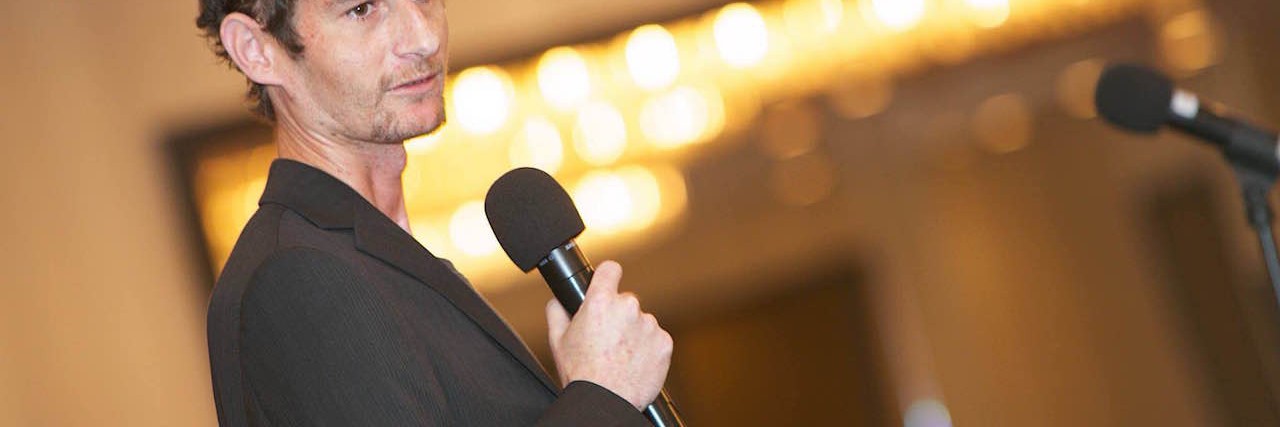When a Doctor Told Me ‘Helping Others With My Condition Should Be Left to Trained Medical Professionals’

At 30 years old, I’ve lived with short bowel syndrome (SBS), a rare intestinal disorder, for my entire life. When it comes to this disease, I’m an expert by experience.
SBS is the result of a congenital defect or trauma and affects about 15,000 to 30,000 people in the US. It is a condition that reshapes the way you live. There are multiple things you become accountable for, including self-managing your condition, keeping on top of medications and frequent visits to the doctor. SBS patients face frequent diagnostic procedures or surgeries, or both. Dietary management is one of the biggest challenges; patients have to make major changes to their dietary needs to help supplement what they do not get through oral feedings — often through TPN and enteral feedings. Being around medicine my whole life was a driving factor to become a full-time patient advocate and support resource for other patients like myself.
In the past five years, I launched the Short Bowel Syndrome Foundation, a non-profit from the ground floor to support that patient base. Since then, I have attended different digestive disease and GI rare disease conferences. When I explain I am an advocate for SBS research and awareness and an SBS patient, they became receptive to me and my foundation’s mission. Because it is still a rare condition, there are not many experts. Most clinical experts are seasoned physicians and surgeons, but not all. There are also patients like myself at these conferences, who live and breathe SBS every day. The learning opportunities are endless.
I had many opportunities to talk with physicians and patients at these conferences, and our conversations usually started with them saying, “It is so nice to meet another person like myself. Most people do not understand our daily struggles, so meeting others is uplifting,” or “Thank you for being such a great support system for our patients.” Patients and providers alike felt SBS needed to become more known in the GI community, since there is lacking support for those patients and caregivers. Hearing those sentiments encouraged me, and helped me realize I’m on the right path with the foundation I started five years ago.
Some physicians I have come to know went as far as telling me that I have taught them more about my own disease than what they previously knew. Knowing they learned new insights about the rare disease was empowering. One GI physician informed me most physicians will study a disease process a few times in medical school and then will only see a case or two in their careers.
However, not all physicians I have met at medical conferences were as welcoming. At a previous conference, I was talking with a physician about the foundation, and this physician dismissed the impact we were making to the SBS community. Helping those with SBS, the doctor told me, should be left to trained medical professionals.
My response was, “Even though I don’t have a medical degree, it doesn’t mean I can’t learn from my own experience and apply it to real life situations.”
Patients and caregivers are just as knowledgeable about themselves and their conditions as their own treating physician. It just is not frequently viewed that way. The patient knows their body best, what works, what doesn’t, and when challenged that they are not doing enough for their well-being, miscommunication goes into play. This sometimes results in a negative experience. In the rare disease industry, communication between the patient and provider is imperative.
Until you have actually lived with a condition like SBS, you have no idea what you are dealing with, medical degree or not. It’s a completely different ballgame when you live with a chronic medical condition. Many things in your life change, some good, some bad. One downside to living with a chronic condition is there is always some sort of “fear factor” involved — wondering what could happen after one surgery too many, and the multiple issues that can arise from undergoing surgeries and procedures. For example, septic infections, if not caught in time, can be detrimental to our overall health or even fatal.
On the plus side, living with a chronic condition allows the patient to understand themselves better than they might think. They start learning techniques which allow them to live a productive life. They learn how to effectively communicate with their healthcare provider. All of these things are important to a healthy lifestyle. There will always be stress and worry, but you can try to limit the effect it has on you. I have met a lot of SBS patients like me who want to study the condition and understand it better so they can be more efficient with their lives and time, and live a healthier lifestyle to improve their longevity in life.
As a patient advocate, I know that it is because of healthcare providers that patients like me continue to thrive. But more healthcare providers can benefit from listening more to their patients. Doctors can learn from the experts who come into their offices and hospitals every day. Then, they would have a better understanding and a more “complete picture” of the patient experience that we deal with every day.
The Mighty is asking the following: Tell us a story about a time you encountered a commonly held misconception about your disability, disease, or mental illness. How did you react, and what do you want to tell people who hold this misconception? Check out our Submit a Story page for more about our submission guidelines.

